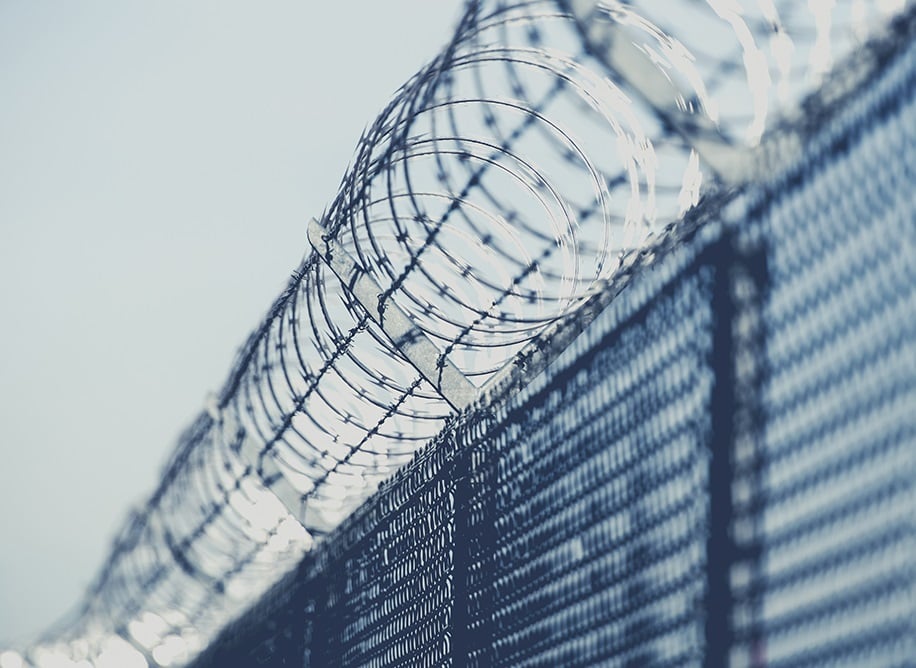Providing Justice for Wrongfully Convicted Inmates

In a high-profile matter that gained international attention, Holland & Knight successfully worked with the Office of the State Attorney for Florida's Fourth Judicial Circuit to help 76-year-old Clifford Williams Jr. of Jacksonville gain his freedom after serving 42 years for a crime he did not commit. In addition, the firm's Florida Government Advocacy Team successfully worked to secure $2.15 million as compensation for the wrongful conviction.
Williams and his nephew Hubert Nathan Myers, 60, who was represented by The Innocence Project of Florida (IPF), are the first men cleared since the State Attorney's Office in Jacksonville started an initiative in January 2018 to review claims of wrongful conviction, the first effort of its kind in Florida.
Holland & Knight Partner Buddy Schulz, chair of the firm's Public and Charitable Service Department that coordinates pro bono and community initiatives, was instrumental in establishing the initiative known as the Conviction Integrity Unit (CIU) for the Fourth Judicial Circuit of the State of Florida. Mr. Schulz arranged for IPF Senior Litigation Counsel Nina Morrison to meet with Fourth Judicial Circuit State Attorney Melissa Nelson to discuss how a CIU would function. Shortly after the meeting, Ms. Nelson established the Fourth Judicial Circuit CIU serving Clay, Duval and Nassau counties. The first case it addressed involved Mr. Williams and his nephew.
The two men were convicted and sentenced to life in prison in 1976 for the murder of Jeanette Williams (no relation to Clifford Williams) and the attempted murder of Nina Marshall. Mr. Myers was 18 years old at the time of the conviction, and Clifford Williams was 34.
The jury found both men guilty after a two-day trial. Defense counsel waived opening statements, presented no significant witnesses and entered no evidence. The only evidence the state presented was testimony from the surviving victim, Nina Marshall. No physical or scientific evidence linked the defendants to the crime, and no witnesses provided any testimony to corroborate Ms. Marshall.
From the moment investigators arrived on the scene, they questioned how the shooting could've occurred inside the room. With an eyewitness statement, however, police and the prosecutor looked past the evidence. Additionally, the forensics pointed to the bullets coming from one gun, fired from outside and through a window, rather than from inside by two guns, like the surviving victim recounted. Plus, dozens of attendees of the birthday party confirmed the men were with them.
The state's probe of the 1976 investigation concluded "that the office has lost faith in the convictions of both Defendant Myers and Defendant Williams."
IPF attorneys filed a motion to vacate Mr. Myer's conviction and sentence, while Holland & Knight's pro bono litigation team filed a nearly identical motion on behalf of Mr. Williams. On March 28, Mr. Williams and Mr. Myers became the first exonerees of the CIU.
"I find the defendants' motions are well founded. The state's decision is well taken and justice demands granting this motion," Fourth Judicial Circuit Judge Angela Cox said upon granting the conviction reversal.
In her remarks following the men's release, Ms. Nelson gave credit to Holland & Knight for helping to establish the CIU. The firm also connected the men with Operation New Hope, which helps former inmates adjust to life outside of prison.
Since the establishment of the Fourth Judicial Circuit CIU, there are now two additional units in Florida – the Thirteenth Judicial Circuit CIU under State Attorney Andrew Warren and the Ninth Judicial Circuit CIU under State Attorney Aramis Ayala.
Comprehensive Pro Bono Representation
In Florida, wrongfully convicted people who demonstrate that they are actually innocent may seek compensation, but a "clean hands" provision excludes those who committed a crime while in prison or had committed a crime and went to prison prior to their wrongful conviction. Mr. Williams had two prior felony convictions – a 1960 attempted arson conviction and a 1966 robbery conviction – and was barred from receiving compensation under the plain language of the statute.
Members of the Florida Government Advocacy Team lobbied lawmakers for the passage of a special legislative claims bill to compensate Williams for wrongful incarceration, notwithstanding the prior felony convictions. Though it usually takes multiple years for a claims or compensation bill to pass through the legislative process, our experienced public policy attorneys were able to move the bill through five legislative committees and the full House of Representatives and full Senate unanimously. Gov. Ron DeSantis signed the bill into law on June 9, 2020, to provide compensation for wrongful conviction. The measure was sponsored by Florida Senate Minority Leader Audrey Gibson and Rep. Kim Daniels.
Mr. Williams will receive $2.15 million ($50,000 per year for the 43 years he spent in prison), and members of our Private Wealth Services Group provided estate planning advice and helped set up the trust fund for his compensation.
About Holland & Knight's Public and Charitable Service Department
Holland & Knight's Public and Charitable Service Department was created in 2009 to integrate the firm's global pro bono, community service and charitable giving initiatives to make deeper investments in communities in need. Holland & Knight annually contributes an amount of time equal to at least 3 percent of the firm's billable hours to pro bono legal service. The variety of cases we take on is as broad as the needs of the communities in which we practice.
